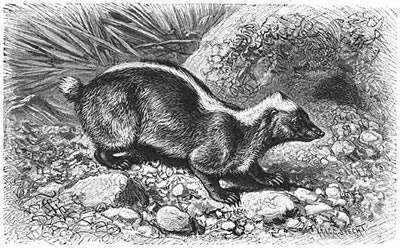Dw i wedi bod ym Mangor ers wythnos a hanner bellach a dw i’n setlo i mewn yn dda. Yn ystod y dydd dw i’n arfer ateb yr e-bostiau sy’n dod o Omniglot, ac yn gwneud pethau eraill arno. Ateb yr e-bostiau ydy’r peth dw i’n treulio y mwyafrif fy amser amdano wrth i mi gweithio ar y wefan. Hefyd, dw i’n ysgrifennu erthyglau am ieithoedd ar gyfer asiantaeth iaith/teithio ym Mrighton, ac yn ymarfer y gitâr a’r chwiban, ac yn dysgu mwy o Wyddeleg a Gaeleg. Dw i’n mwynhau yn fawr ysgrifennu’r erthyglau.
Dw i’n wedi gwario gormod o bres yn ddiweddar yn prynu dodrefn a phethau eraill ar gyfer y tŷ. Nid peth rhad ydy symud tŷ! Yn ffodus mae’r costau yn llai ym Mangor nac ym Mrighton, a fan hyn dw i’n prynu bwyd mewn archfarchnadoedd rhad fel Aldi ac Iceland; yn Mrighton o’n i’n prynu bwyd yn Waitrose, archfarchnad costus iawn, ond roedd hi’n yr archfarchnad ymylaf i fy nhŷ. Un ddiog iawn ydw i weithiau.
Dw i’n mynd am dro bob dydd, heblaw pan mae’n bwrw glaw trwm, a dw i’n ceisio mynd i ddilyn llwybr gwahanol bob tro. Felly dw i’n mynd yn fwy cyfarwydd efo’r dref, ond dw i ddim wedi dod i nabod neb yma eto.
Ddydd Sul diwethaf es i i Landudno am y tro cyntaf. Mae’r lle yn hyfryd, yn enwedig y traeth, y bae, a’r Gogarth, ac roedd llawer o bobl yn mwynhau’r tywydd braf. Y tro nesaf, bydda i’n mynd â fy sgidiau sglefrolio ac yn manteisio ar y promenâd hir. Mi ges i synnu nac roedd neb arall yn gwneud yr un peth.
Ddoe es i i Gaernarfon yn y prynhawn. Dyna’r ail dro dw i wedi mynd yno a gweles i mwy o’r dref y tro hwn.
Socraigh isteach i mBangor
Tá mé i mBangor le seachtaine go leith anois agus tá mé ag socraigh isteach go maith. I rith an lae bím ag freagair ríomhphostanna atá ag teacht ó Omniglot, agus ag déanamh rudaí eile air. Ag freagair ríomhphostanna atá an rud bím ag caith an chuid is mó de m’am air agus mé ag obair ar an suíomh. Bím ag scríobh altanna faoi teangacha do ghníomhaireacht teangacha/taistil i mBrighton, ag cleachtadh an giotár agus an fheadóg stáin, agus ag foghlaim níos mó Gaeilge agus Gàidhlig freisin. Bainim an-sult as na haltanna ag scríobh.
Tá mé ag caitheamh barraíocht airgid le déanaí ag ceannaigh troscán agus rudaí eile don teach. Níl rud saor atá aistrigh i dteach nua! Go hádhúil bíonn an costas maireachtála níos lú i mBangor ná i mBrigthon, agus anseo bím ag ceannaigh bia in ollmhargaí saoire mar Aldi agus Iceland; i mBrighton bhí mé ag ceannaigh bia i Waitrose, ollmhargadh an daor, ach bhí sé an t-ollmhargadh is cóngaraí do m’árasán. An leisciúil atá mé amanna.
Bím ag dul ag siúil gach lá, ach nuair atá báisteach trom ann, agus bím ag triail as slí éagsúla a lean gach uair. Mar sin de, tá mé ag éirigh níos eolacha leis an áit, ach níl aithne agam ag aon duine anseo go fóill.
De Domhnaigh seo caite, chuaigh mé go Llandudno ar an chead uair. Is áit álainn í, go hairithe an trá, an bá agus an Great Orme agus Little Orme (cinn tíre móra ag gach ceann an trá), agus bhain a lán duine sult as an aimsir deas. An uair seo caite, tabharfaidh mé mo scataí agus scátálfaidh mé i rith an promanád.
Inné chuaigh mé go Caernarfon sa tráthnóna. Bhí sin an dara uair a bhí ag dol ansin agus chonaic mé níos mó an uair seo.
